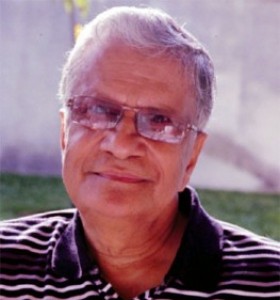A Brief History About the Family Name “Bose”
| The family name Bose is normally associated with the Indian state of Bengal and most people believe that they had their origins there. There are a zillion Boses in the world these days, but I wonder how many of them know about their history. The Boses can trace their origins back a few hundred years and there are quite a few famous (and infamous!) people in the family line. If your last name is Bose, here\’s what you have to be proud (or ashamed) of! |
| The origin of the family name Bose (and other variations of the same name, Basu orBosu) can be traced back to almost seven hundred years ago and is linked to the the spread of Islam replacing Buddhism as the official state religion in many places in India. For example, before Islam came to Afghanistan, the area was ruled by the Buddhist emperors Ashoka and Kanishka – the latter having his capital in Purushpur or present day Peshawar. Similarly, in Bengal (both present day West Bengal in India and Bangladesh) a Buddhist dynasty of kings named Pal were ruling the kingdom. At this time, India was composed of hundreds of small states each with their own local rulers. |
| Bakhtier Khilji of the Slave Dynasty Sultanate in Delhi attacked the area that is today the present day state of Bihar in 1198-99. In the following year, he invaded Bengal and made Islam the official state religion (Incidentally, he also destroyed the famous university of Nalanda in Bihar at this time). The next year, he tried to annex the state of Assam, but could not succeed and eventually went back to Delhi, where he died. Meanwhile the state of Bengal had become part of a larger Islamic state, with a dozen smaller independent kingdoms which were ruled by local rulers. After Bakhtier Khilji\’s death, these smaller states started to rebuild their kingdoms again. |
| One of the twelve local rulers was King Pratapaditya of Jessore (currently in southern Bangladesh). At this time, the caste system was pretty much the way of life in India and certain communities were always expected to perform certain tasks. In order to rule the region, the King needed various types of people like Brahmins for religious purposes, Kshatriyas for war and defence, Baniyas for business etc. However, due to the invasion by Bakhtier Khilji, there was a shortage of such people in Bengal. He therefore requested the King of Kanauj (present day state of Uttar Pradesh) to send some appropriate people and it is said that five Brahmins and five Kayasthas (the five surnames Bose, Ghosh, Mitra, Guha and Dutta) were dispatched to Bengal. The first Bose to arrive was Dasarath Bose. |
| Local legend has it that when the first group of people arrived, they could not immediately meet the King and they were given some water to drink and refresh themselves. After drinking the water, the remaining water was poured over some dying plants which suddenly started to regrow again. This convinced several people that the newcomers were just what they were looking for. |
| The newcomers were settled in a place called “Kulingram” somewhere in present day Burdwan district of West Bengal with the explicit mission to re-establish “Kul-dharma” (caste system). Bengali literature of the last two to three hundred years are full of stories of atrocities committed by old men going from village to village and taking several young girls as their wives and generally causing suffering all around. |
| One of the descendants of Dasarath Bose was the fifteenth century poet,Maladhar Bose, who wrote the book “Srikrishna Vijay” in Bengali (his contemporary was the poet Kritrivas Ojha, who wrote the Bengali version ofRamayana). Maladhar Bose\’s accomplishments were recognised by the then ruler of Bengal, Hussein Khan, who offered him (and his descendants) the hereditory title of “Gunaraj Khan“. From then on, there has been one branch of the Bose family that wrote their surname as “Bose-Khan”. Technically, yours truly also belongs to this branch and could use this expanded surname. Another surname added on wasMajumdar and technically, yours truly could append that also (as if it wasn\’t long enough!). |
| One branch of the Bose family went to East Bengal and they lived in Natakhalivillage in the Manikganj subdivision of Dhaka district until the partition of Bengal in 1947. This part is now in present day Bangladesh. One subgroup of this Natakhali branch, however, moved away from the home range and moved to Bhagalpur in the present day state of Bihar around the second half of the eighteenth century. Here\’s where I can trace my ancestry to: |
